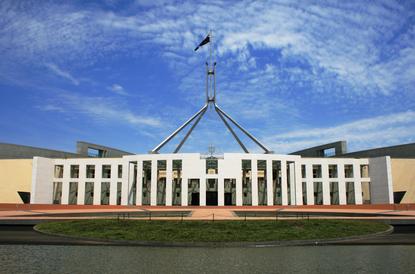Coalition and Labor push through data retention
- 26 March, 2015 20:31

The government’s data retention bill has successfully made it through the Senate, with the Coalition, Labor and the Palmer United Party’s Dio Wang voting for the legislation.
The legislation was opposed by the Greens, the Liberal Democratic Party’s David Leyonhjelm, and Nick Xenophon and other independent crossbench senators.
The Coalition and Labor rejected attempts to amend the bill.
The Greens, Leyonhjelm and Xenophon had unsuccessfully sought to increase the protections incorporated in the bill, including for journalists, lawyers and healthcare practitioners.
In the end, every proposal to alter the bill, including an amendment moved by Wang, was shot down by the Coalition-Labor combination.
Under provisions of the Telecommunications (Interception and Access) Amendment (Data Retention) Bill 2015, telcos and ISPs will be mandated to retain for 24 months a range of customer data.
The data, which the government argues does not include ‘content’, will be accessible to a number of law enforcement agencies under a warrant-free regime.
A number of questions about the data retention regime remain unanswered, including the level of government funding to help ISPs implement the scheme and uncertainty about the meaning of a general ‘encryption’ requirement in the legislation.
“The ALP has caved in to Tony Abbott's self-interested fear campaign and supported a bill that entrenches a form of passive mass surveillance over 23 million Australians," Greens Senator Scott Ludlam said in a statement.
“The ALP will be judged for that, and we will ensure that people never forget who made this possible.
“Surveillance should be targeted, proportionate and levelled at serious criminals, organised crime and national security threats. This bill entrenches the opposite.
“The government won’t disclose the costs of the scheme, is silent on the risk of unauthorised disclosure, and at no stage has been able to point to evidence that collecting the private records of 23 million non-suspects will keep people safer or reduce the crime rate.”
"By passing this Bill, the Parliament has ensured that our security and law enforcement agencies will continue to have access to the information they need to do their jobs," a statement issued on behalf of Attorney-General George Brandis and Communications Minister Malcolm Turnbull said.
"No responsible government can sit by while those who protect us lose access to vital information, particularly in the current high threat environment.
"At the same time, the Bill contains safeguards to protect our cherished rights and liberties, including through the establishment of additional oversight mechanisms covering the security and law enforcement agencies.
"Metadata is the basic building block in nearly every counter-terrorism, counter-espionage and organised crime investigation. It is also essential for child abuse and child pornography offences that are frequently carried out "
